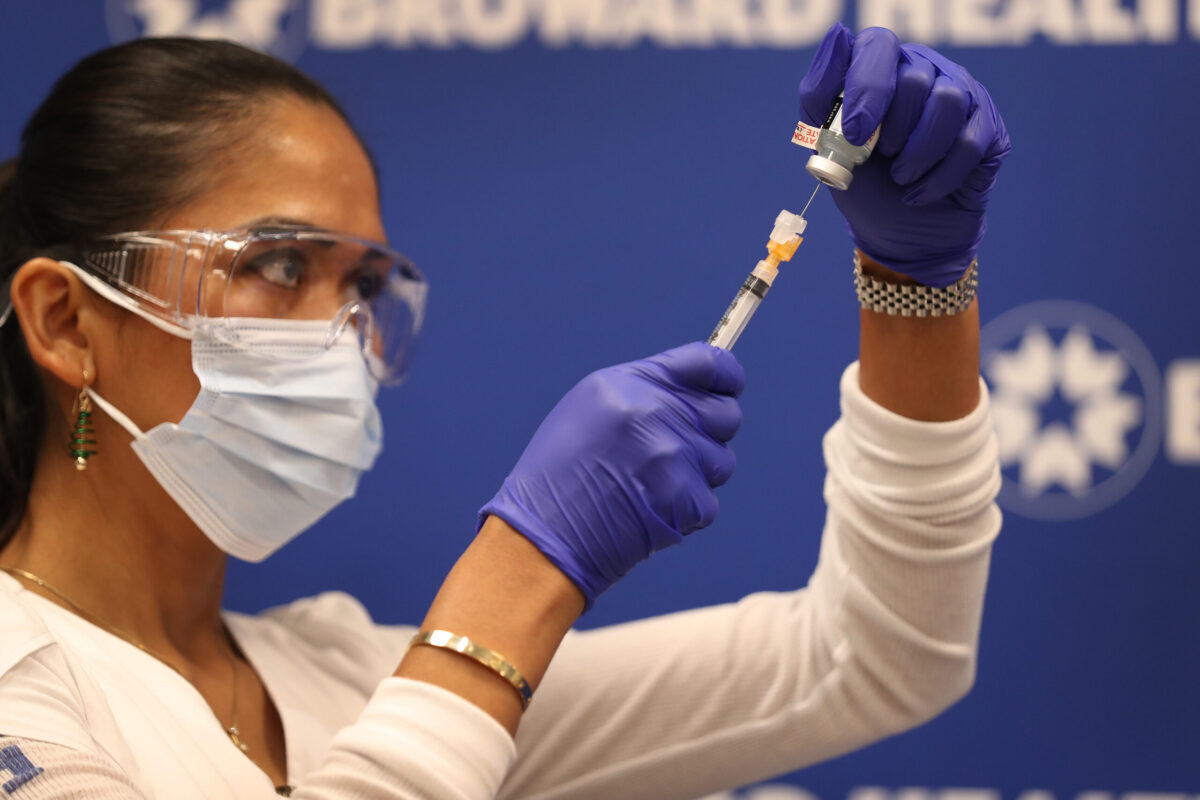You Are 200 Times More Likely to Die from Taking Aspirin Than From Covid Vaccine: Report

Joe Raedle/Getty Images
Getting the Covid-19 vaccine is far safer than taking daily Aspirin, according to a report from Australian professor and public health physician Nathan Grills.
Grills, a professor at the University of Melbourne with 20 years of experience working in global health, penned a report stressing that side effects from Covid-19 vaccines such as AstraZeneca have been “greatly exaggerated.”
“Around 11 percent of older Australians take daily aspirin to help prevent stroke and heart attack, but statistically, aspirin is two hundred times more dangerous than AstraZeneca – resulting in around one death per 10,000 people,” he wrote.
The professor further explained that in comparison to deaths due to aspirin, just two people in Australia have died from the AstraZeneca vaccine, “despite nearly four million doses” received in the country.
So why is there still hesitancy surrounding the vaccine, while millions of Australians continue to take aspirin daily?
“Perhaps it’s because the media – and anti-vaxxers – are very good at making rare side effects seem very common by focusing all the attention on those effects,” Grills explained. “This trick starts with a fact – like AstraZeneca can cause blood clots – from which risks are extrapolated and exaggerated, scaring vulnerable people.”
Grills further noted that in 2021, people were four times more likely to get struck by lightning than to die from the vaccine, and that taking the contraceptive pill “can cause clots in five to 12 women in every 10,000.”
“AstraZeneca and Pfizer use vaccine technology that’s been carefully developed over decades of research,” he added, arguing that Covid-19 vaccines are not as new as they seem. “They rely on stimulating the immune system – similar to the other 18 jabs that the average 18-year-old has already received.”
“Furthermore, we already have large amounts of data on the current COVID-19 vaccines – worldwide, we recently passed the two-billion dose milestone,” he continued. “Severe adverse events, like blood clots, are being very closely monitored and have mostly been minor or exceedingly rare.”




